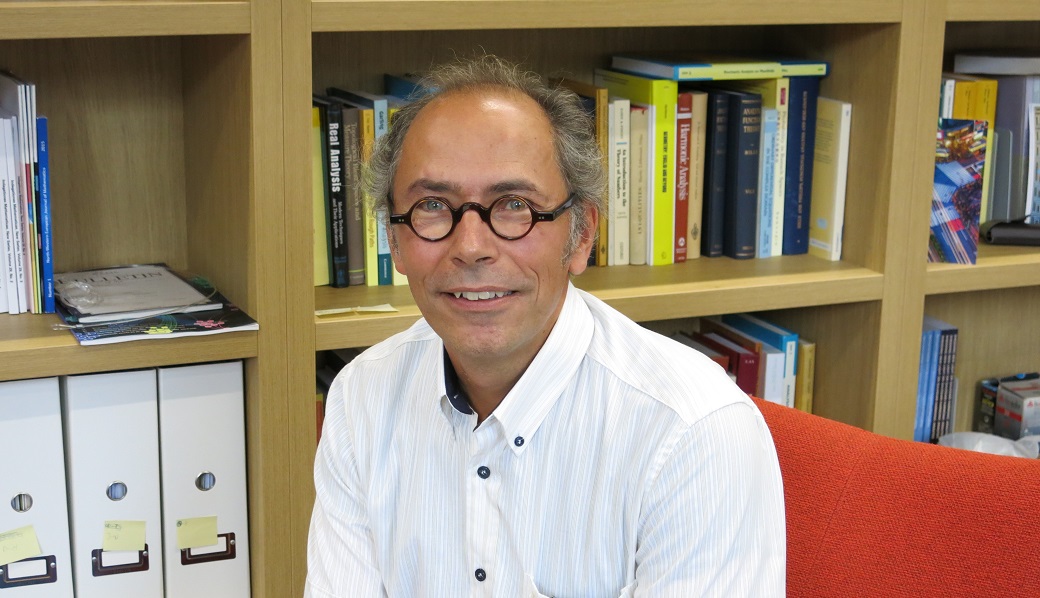Who are the people who study and work at TU Delft? We meet them in Humans of TU Delft where they talk about their work or other activities. Meet Professor Jan van Neerven.
(Photo: Heather Montague)
Professor Jan van Neerven has always been fascinated by philosophical issues. Combining his two interests, he now teaches a course on the philosophy of mathematics.
“First and foremost I am a mathematician. I do research and I publish, so in that sense I’m just an ordinary scientist. But since my childhood I’ve been interested in the ‘big philosophical issues’. I studied biology before mathematics because I was fascinated by why we humans are self-conscious. How can it be that matter, molecules, atoms organise themselves in a way that they are aware of themselves? I was naive enough to think that I could answer this question by studying biology. During my studies I discovered, however, that neuroscientists just study neurons. Meanwhile, I started pursuing a bit of mathematics, basically for fun, but I got carried away by it. A whole new world opened up to me. It took one or two years to admit to myself that I was really more a mathematician than a biologist, and that’s what led me to do a PhD in mathematics.
Several years ago our department used to offer a course about the societal aspects of mathematics. When the lecturer retired, the Chair of the department looked for a volunteer to take it over. Then I started thinking about what one could do with the course. It would be a challenge, but it would provide me with an excuse to go back to some of those philosophical questions that had always fascinated me.
‘The maths is there, right under our noses!’
If you think of mathematics as a purely formal system of axioms and rules of inference, you could in principle programme a computer to generate all the theorems of mathematics. In doing so you treat mathematics at a syntactical level as a game of symbols devoid of any meaning. Mathematics, however, is interesting on a semantic level, it appears to have content that is quite independent of the axioms.
The truly fascinating thing that pulled me into the philosophy course is that when you look into physics, you’ll discover that the deeper you dig the more it mathematises. The maths is there, right under our noses! This is very mysterious. If maths is a bunch of axioms and rules, you don’t expect it to tell you something about the real world, just like the game of chess won’t tell you anything about the real world. But the truth is that it’s very hard to draw the line where mathematics ends and where physics starts.
My course is centred around this ‘unreasonable effectiveness of mathematics’, to quote the famous mathematical physicist Eugene Wigner. How can we understand that mathematics has meaning, and why is it so useful in physics? These are profound philosophical questions, and the more you know, the further you get from answering them. This is probably the only course at TU Delft where you know less for certain after the course than before.”
Want to be featured in Humans of TU Delft? Or do you know someone with a good story to tell? Send us an e-mail at humansoftudelft@gmail.com
Heather Montague / Freelance writer



Comments are closed.